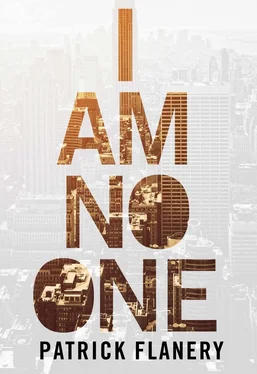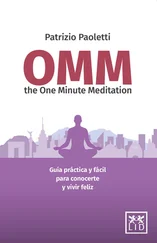Despite myself I found Stephen’s assessment flattering. That sharp-edged flattery, I later learned, was his most dangerous charm.
‘Entirely wrong, as far as I know.’
‘Saxon, then, a slew of Saxon ancestors way, way back, but your grandparents grew up in New England.’
‘That’s correct, but not New Canaan. Southern Vermont and Poughkeepsie.’
Stephen clapped his hands with pleasure.
‘Poughkeepsie! How divine! You see! I knew it! I knew it ! I always win at this game!’
‘And you, Dr. Jahn? Where’d you grow up?’
‘Please, we must now be Stephen and Jeremy to each other,’ he whispered, leaning towards me across the table, ‘for we are Americans, little though we sound it. No, my dear, I grew up on Long Island, Port Washington, or near there, though do not jump to false conclusions. My father and I are very much nouveaux pauvres . Thank you, Matthew,’ he said to the College Butler, who always waited at High Table and was clearing away the main course dishes. ‘Tell Chef the fish was perfection.’
‘I will do, sir,’ Matthew said, adding another plate to the bow of his left arm.
As soon as Matthew had left through the door to the kitchen Stephen leaned even farther across the table and whispered, ‘They had to bail Matthew out of jail last week. Brawling. In a student pub. Luckily none of our members was involved. If they had been, he’d have got the sack for sure. Now, though, it’s perfect. Even if he wanted to leave he couldn’t. He’ll be indebted to the College for the rest of his working life. You know what these English peasants are like. West Country farmers.’
Stephen could get away with saying such a thing that evening because there was, by chance, not a single British person at the table and the undergraduates were too far away and too engrossed in their own raucous conversations to overhear. On that first meeting, after the dessert, and then the second dessert in the Senior Common Room dining room, and the passing of the port round the table, always clockwise, and the increasingly befuddled and self-aggrandizing or self-recriminating or self-exculpatory conversation that threatened to compromise all assembled if anything was remembered the following morning, I thought of Stephen Jahn as merely one more colorful barnacle on the boat of my Oxford life, which is to say I was amused by him, by his pomposity and the ways in which he had embraced a European life and lifestyle, how he had affected habits that most Americans would find distasteful if not immoral, but believed that our acquaintance would never become more intimate, since he was, first of all, patently a homosexual and I had, at the time, no close gay friends (in retrospect this now seems more like a failing on my part, a failure of my own ostensibly liberal credentials, than anything else), and secondly because it was apparent even on that first meeting that although he might have been something like a Centrist Democrat in America, in Britain he could only be a Conservative, and I had forsworn friendship with Tories because too often I found that conversation quickly foundered on the rocks of my own sense of political correctness (yes, I know, that absence of gay friends makes my own position at the time slightly indefensible), so it seemed impossible to be relaxed around men and women who were so dispiritingly inclined to say offensive things about women (yes, even the women), people of color, Africans, Asians, not to mention Southern Europeans (‘the Latin is racially distinct, you can tell by the way he treats his women,’ a Fellow in Anthropology once told me), homosexuals, transsexuals, and, sometimes most of all, Americans. From the Tory perspective Americans were gauche, ill bred, poorly educated, little better than children, and yet useful geopolitical allies. From the perspective of the hard-left ranks of Labour, Americans were racist hoodlum militarists seeking to take over the planet. There was, I once told Stephen Jahn, nowhere for someone like me in British politics. I voted Labour because I could not stomach the Tories but I did so holding my nose, as the British like to say.
Some years later, however, Stephen suggested we ‘and a couple of other bachelor members of the SCR’ keep watch on the High Table reservation list and try to find a night when a small party of sympathetic souls might dine alone. ‘And then, after dinner, you must come back to my flat to try some very excellent single malts.’
I remember nothing of that dinner itself, nor of who else might have dined with us, though it was likely one of the Fellows in English and his boyfriend, and possibly the Fellow in German, but at the end of the dinner Stephen and I quickly departed, walking down Turl Street, across High Street, down Alfred to Blue Boar, along to St. Aldate’s, all the way past Christ Church and Pembroke and the line of cutesy Alice in Wonderland-related shops, past the Music Faculty and the grungy police station, down to the unromantically modern brick structure of Folly Bridge Court, where Stephen owned an apartment that spanned the top floor, on one side overlooking the Thames and that island in the river clustered with a number of buildings, and on the other a Victorian school converted into flats.
Stephen’s place was modern, with a plush off-white wool carpet (we both removed our shoes), a bathroom whose walls were lined in white subway tiles, a kitchen with a slate floor and shiny white cabinetry, two bedrooms into which I was not allowed to look, and then a large living and dining space, with views to the north and the south, furnished with a glass and steel dining table, steel chairs with black leather seats, an assortment of black leather couches and chairs, and the walls covered with metal bookshelves and packed with books as well as a large collection of DVDs, all in the same gray plastic covers, numbered rather than labeled with titles. The DVDs gave me a chill, for they suggested to me, in my naïveté, a collection of pornography, and Stephen Jahn seemed exactly the kind of man who might be in possession of such a comprehensive-looking assemblage of vice.
He directed me to the couch nearest the south-facing window, though it was impossible to see much without going right up to it since the apartment was effectively in the attic of the building and all the windows were angled into the slanted roofline.
‘Let us begin with a young specimen, before we move on, in carefully judged stages, leading up to our arrival at a place of greater maturity. We’ll begin with a ten-year-old,’ and with that he crouched down in his socks to remove several bottles with labels I did not recognize from a black-lacquered sideboard, along with two crystal glasses of a suitably modern turn. He poured us each a glass, removed his jacket so he was only in his white shirt sleeves, gray waistcoat, and gray trousers (black socks, of course, because the understatement seemed to suit him; he was not, like some assimilated migrants to Britain and many homegrown British men, given to wearing brightly colored or patterned socks with sober suits), and sat down on the couch opposite like a schoolboy, or perhaps like a maiden aunt entertaining her first suitor in twenty years.
His jacket was draped over the back of a chair, though he had done this with considerable care, making sure to fold it along its central seam and laying out the sleeves so they would not be rumpled. I wondered, however, why he did not just take a moment to hang the jacket in his closet in one of the bedrooms. Perhaps because he did not want to leave me alone to snoop around his bookshelves, although I had little interest in Stephen Jahn’s life or whatever secrets he might have held. In fact I felt distinctly as though our acquaintanceship had evolved in sudden spurts of parallel but unequal growth, so that by the time of my visit to his Folly Bridge flat I understood, perhaps only at the edges of consciousness, that I was much more interesting to my colleague than he was to me. Why this should be so I could not then imagine, and there was no element of false modesty in that feeling, for I was, apart from the fact of being an American abroad like him, and being employed by the University of Oxford and one of its constituent Colleges, also like him, no more remarkable than any other academic anywhere else in the world, and arguably less remarkable because I had, to my own discredit, failed to make tenure at Columbia University, where I would have remained in all happiness for the rest of my working life had I been allowed to do so. It was possible, I supposed then, that Stephen Jahn was attracted to failure, or to failure rehabilitated, which was how I then thought of myself: I had not made a total secret of my shipwrecked career in American academia and the ways in which this move to Oxford was in a very real sense an escape from a more robust and more discriminating system, to one that was more fluid, less secure, and far worse paid.
Читать дальше












